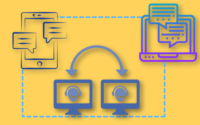
Why do University Teachers use E-Learning Systems?
University teachers are the main players when it comes to integrating e-learning systems into higher education institutions. Prior studies have identified four main antecedents that explain teachers’ technology acceptance in the educational context: (a) subjective norms (SN), (b) technological complexity (TC), (c) constructivist beliefs (CB), and (d) motivation for instrumental use (MOT). In this study, […]















